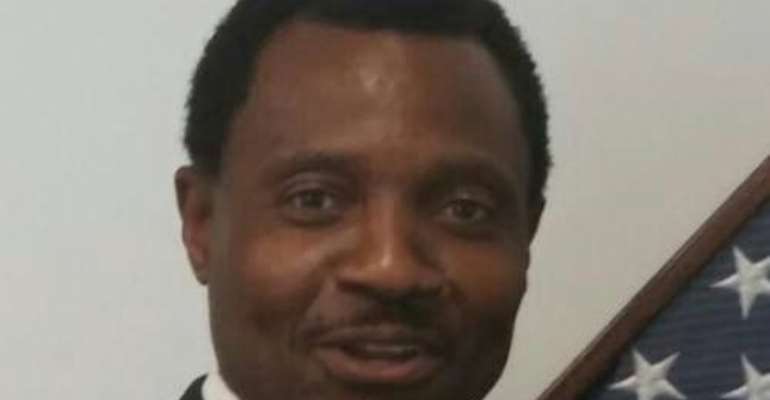Afripol Supports Buhari‘S Opposition To Naira Devaluation

Naira is gradually evolving into a ‘proxy’ and ‘puppetry’ currency to both US dollar and British pound. Therefore it is devoid of logic and not prudent to further devalue naira in this circumstance as stipulated and recommended by the overbearing IMF. The economic managers and financial policy makers of yesteryear Nigeria failed woefully to safeguard and protect the emerging and fledgling naira currency.
The prevailing eclipse of naira by the dominant dollar has softened the intrinsic value of naira as the principal medium of exchange in the commonwealth Nigeria. The herculean mismanagement of naira as shown by its deterioration as determined by the forces of the market, invariably hinged on demand and supply law on the parallel market.
Therefore the opposition by President Buhari on the further devaluation of naira is reasonably comprehended and maybe the best option for Nigeria at the moment. Theoretically, the devaluation of naira may look appealing on esoteric and intellectual exercise but on practical level it will literally heap more problems on the country’s macroeconomics with alarming effects on inflation and employment.
On this ground AFRIPOl (Africa Political and Economic Strategic Center) stand shoulder to shoulder with President Buhari’s administration adamancy to imbibe the bitter cup of currency devaluation.
History is Nigeria’s greatest weapon of defense for this is not the first time the country has tested the unjustably repercussion of drastic naira devaluation. No good student of Nigeria’s sociology-economics history will allow the SAP – (structural adjustment program) disaster to escape his memory. The SAP recommended by IMF connotes the devaluation of naira at an alarming rate that subsequently, brought about the total collapse of the country’s economy.
Nigeria has missed a lot of opportunities, but as they say, it is better late than never. The billions of dollars Nigeria accumulated from crude oil export were wasted. It is utterly incredible, even with large oil revenues there is no steady supply of drinking water and electricity in the so-called giant of Africa at the dawn of 21st century. Most of the generated revenues were siphoned to foreign banks where the host nations will utilize it for further development of their own nests: While millions of poor and destitute Nigerians are wallowing in abject poverty and penury, unable to feed their families three square meals a day.
Emeka Chiakwelu, Policy Strategist at Afripol on piece titled, “Politics of currency devaluation” argued that naira devaluation at the moment is not inimical for the normalization of the dwindling macroeconomics s stability of the country. His observation and analysis was made with intellectual vim and clarity. His words:
“The economy is not a wholly export based except crude oil and the economy is not diversified with arrays of manufactured products for export. The logic of devaluation is to induce and increase export by lowering the prices of local manufactured products making them attractive for export. But that is not the case with Nigeria, a mono-product exporting country; crude oil which generates about 90 percent of the country's foreign exchange is not fit for such a move.. By devaluating naira the price of oil will further nosedive and country's foreign reserve will dwindle, while the incentive to buy Nigerian fiduciary bonds and securities in international market will depreciate.”
Chiakwelu further stipulated his facts with current scheme of things especially wellbeing of the economy:
“To be factual, Nigerian currency naira has already been weakened by rising inflation and market forces as buttressed by the exchange rate at the parallel market. At this point in time the inflationary trend is gradually creeping into the monetary base and naira is gradually but steadily losing its ground. Therefore what is the logic of further devaluating a currency that already have been weaken by rising inflation and by so doing summons and heaps a greater hardship on the majority of Nigerians.”
Chiakwelu therefore reflected on the latest development in the country with a conclusive analysis:
“But this latest move by IMF for naira devaluation cannot in long-term solve the problems of the declining oil price and paucity of diversify source of foreign exchange reserve. An export orientated economy is inevitable for sustainable naira stability to be maintained. Nigeria must have a mix of other revenues other than oil for replenishing and marinating an appreciable foreign reserve that can pose as an intimidating war chest, able to repel aggressive currency speculators. Other than Nigeria will be on roll coaster for foreseeable future because the fallen oil price is the future normality.”
Momentarily, Nigeria needs a steady hand of probity, sound management and accountability. Over bloated budget and unnecessary spending must be curtailed, if not outrightly abandon. This is a season to put the house in order before it totally collapse and its fortunes irreversible.
Monetary policy makers must look beyond immediate panacea for there is no easy way out. But rather focus and anchor on long-term strategy without exerting excessive tight monetary policy or surplus money creation that may undermine pro-growth policy and further weaken the malleable naira.
Emeka Chiakwelu, Principal Policy Strategist at AFRIPOL. His works have appeared in Wall Street Journal, Huffington Post, Forbes and many other important journals around the world. His writings have also been cited in many economic books, publications and many institutions of higher learning including tagteam Harvard Education. Africa Political & Economic Strategic Center (AFRIPOL) is foremost a public policy center whose fundamental objective is to broaden the parameters of public policy debates in Africa. To advocate, promote and encourage free enterprise, democracy, sustainable green environment, human rights, conflict resolutions, transparency and probity in Africa. [email protected] www.afripol.org
